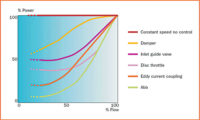An initiative that promises to make Milwaukee one of the most energy-efficient cities in the nation has been launched by the city and Milwaukee-based Johnson Controls.
Last spring, the city's Office of Environmental Sustainability started Milwaukee Energy Efficiency -- or Me2 -- with goals of reducing pollution, creating hundreds of private-sector green jobs, reducing energy bills and improving the commercial building and housing stock.
This community-wide effort is being accomplished without the use of any local government funds or subsidies. The innovative Me2 Clean Energy Financing Program leverages funds that it received from the American Recovery and Reinvestment Act to provide up to $60 million in enhanced private-sector financing for building owners. Me2 helps to link property owners to energy contractors and private lenders, while eliminating significant upfront costs associated with efficiency projects that are then paid for from savings resulting from reduced energy use.
Johnson Controls is working with the city and property owners on these programs. The company has extensive experience in building efficiency upgrades and has led or participated in numerous retrofit projects throughout the world including the iconic Empire State Building in New York City where the building is expected to decrease energy use by 38 percent and save $4.4 million per year.
Iain Campbell, vice president and general manager, Building Efficiency, Johnson Controls, praised Milwaukee's leaders for their dedication and decisive actions to support energy-efficiency projects that will have long-lasting impacts on the city.
"The city of Milwaukee has created a program that will lead the nation and serve as a model for other cities to promote and help enable widespread private-sector energy efficiency," he said. "These projects will bring Milwaukee tremendous benefits at no cost to local taxpayers."
The first Me2 project has already been launched at The Newport, a co-op project located at 1620 N. Prospect Avenue. Johnson Controls is implementing the removal of existing HVAC systems and replacing them with more energy-efficient equipment. A new building automation system will also be installed to control the HVAC equipment that serves the building, including common areas such as the entrance foyer, parking garage, basement and hallways.
The efficiency upgrades are expected to save The Newport more than $48,000 in annual energy costs once Johnson Controls completes the project this spring.
"This is an excellent example of the type of project that the city had in mind when it formed Me2," said Erick Shambarger, deputy director for the Milwaukee Office of Environmental Sustainability. "We expect the Me2 initiative will lead to the start of many more energy-efficiency projects within the year."
For more information on Me2, visit www.smartenergypays.com/businesses.
Other cities, including New York City, Los Angeles, San Francisco, Atlanta, Miami, and Washington, have either begun or are planning to implement similar programs.




